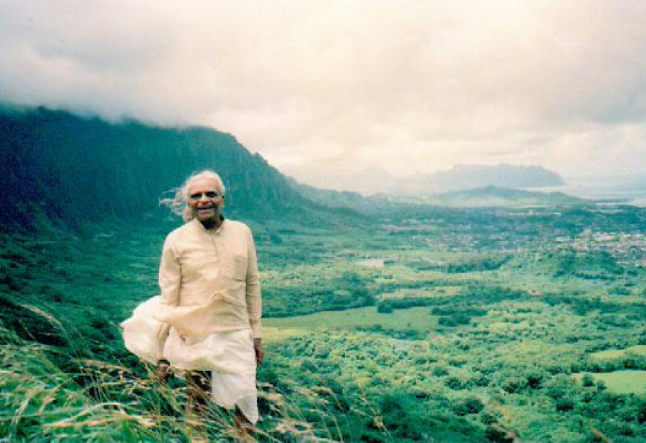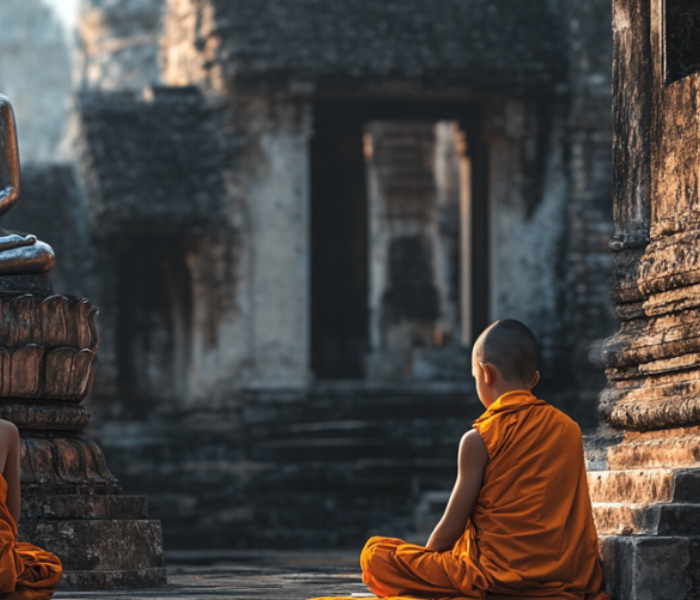B.K.S. Iyengar: The man who brought Yoga to the West

His enduring influence on Western Yoga
B.K.S. Iyengar was not just a teacher of yoga—he was a bridge between ancient Indian tradition and the modern Western world. As a devoted student of T. Krishnamacharya and founder of Iyengar Yoga, his legacy spans continents and decades.
Through rigorous discipline, personal hardship, and passionate teaching, Iyengar transformed yoga into a widely accessible practice that transcended physical postures and reached into the realms of healing and mindfulness.
A Legacy rooted in adversity
Born in 1918 in Belur, Karnataka, Iyengar’s early years were marked by hardship. Born during the influenza pandemic and frequently ill through childhood, he battled diseases like malaria, typhoid, and tuberculosis.
At the age of 16, his life took a dramatic turn. His sister married Krishnamacharya, who agreed to mentor the young Iyengar. Starting with simple postures to improve his health, Iyengar gradually built a practice centered on alignment, breath, and discipline—foundational elements that would define his later teachings.
“Yoga teaches us to cure what need not be endured and endure what cannot be cured.” – B.K.S. Iyengar
Teaching and spreading yoga to the West
In 1955, Iyengar made his first trip to the United States, where yoga was still a niche interest. With limited English but an abundance of passion and skill, he began demonstrating and teaching across the country.
By 1972, the first Iyengar Yoga studio was opened in Ann Arbor, Michigan, planting roots for a style that emphasized precision, timing, and sequencing. These attributes made the practice particularly appealing to Western students, including artists, scientists, and athletes looking for structure, clarity, and healing.
His influence continued to grow, not only through studios but also through his widely read books, including Light on Yoga, Light on Pranayama, Light on the Yoga Sutras of Patanjali, and Light on Life. These texts remain essential to practitioners and teachers alike.
Recognition, research, and reverence
On October 5, 2005, over 1,800 yogis gathered at Royce Hall at UCLA to honor Iyengar. The event featured Indian classical dance, clips from Diane Estelle Vicari’s documentary on Iyengar, and heartfelt tributes from major institutions.
Iyengar was celebrated for his work with:
- Depression and mood disorders
- Neurological conditions
- Chronic pain and physical rehabilitation
He received acknowledgments from:
- University of California, Riverside
- Neuropsychiatric Institute at UCLA
- Mattel Pediatric Pain Clinic
- Multiple Sclerosis Society
What left the deepest impression was not only his scientific understanding of the human body but also his humor, humility, and ability to translate ancient wisdom into modern life.
These recognitions weren’t just honorary; they were grounded in science. Multiple studies have shown the efficacy of Iyengar Yoga for managing physical and psychological conditions:
- A randomized controlled trial found that Iyengar Yoga significantly reduced functional disability and pain in individuals with chronic low back pain (PubMed).
- Another study demonstrated improvements in neck pain, mental health, and quality of life through consistent practice of Iyengar Yoga (The Journal of Pain).
- A clinical trial published in the Journal of Alternative and Complementary Medicine observed notable reductions in blood pressure among patients practicing Iyengar Yoga regularly (PubMed).
- Iyengar-based interventions were also effective in improving depressive symptoms, particularly when practiced alongside breathing techniques (Time Magazine).
- For patients with pulmonary arterial hypertension (PAH), Iyengar Yoga offered measurable improvements in health-related quality of life (Journal of Heart and Lung Transplantation).
Philosophy and personal practice
In his talk at Royce Hall, Iyengar reminded the audience that “the original meaning of yoga is to live auspiciously.” This wasn’t just a slogan, but a principle he lived by and taught throughout his life.
Today, thousands of certified Iyengar teachers carry his methods forward. The practice often uses props such as blocks, straps, and bolsters—tools pioneered by Iyengar to make yoga accessible to all body types, ages, and health levels.
As Iyengar often emphasized, yoga should be practical and healing—not merely philosophical. Today, clinical research continues to validate his belief that alignment, breath control, and mindful movement are key components in preventing and managing modern lifestyle diseases.
A personal reflection
Let yoga be your guide. It has guided me since 1990, when I began with one Iyengar teacher and a single book. My practice has evolved through countless workshops, teacher trainings, and meditative study. My mantra: Know yoga ~ Know peace.
Remembering B.K.S. Iyengar
B.K.S. Iyengar passed away on August 20, 2014, at the age of 95, in Pune, India. His cremation was held at the Vaikunth Auditorium the same day. Though his physical presence has gone, his teachings continue to transform lives on every continent.
Today, over 70 countries have certified Iyengar Yoga institutes or affiliates. His legacy is not just about poses—it’s about living with awareness, dignity, and purpose.
Clinical validation of Iyengar Yoga
Therapeutic Benefits Backed by Research:
- Lower back pain relief – PubMed Study
- Reduced blood pressure – Hypertension Trial
- Improved depression symptoms – Time Report
- Help for chronic neck pain – The Journal of Pain
- Enhanced quality of life in PAH patients – JHLT Study




